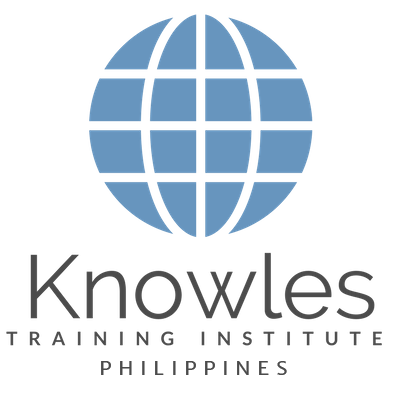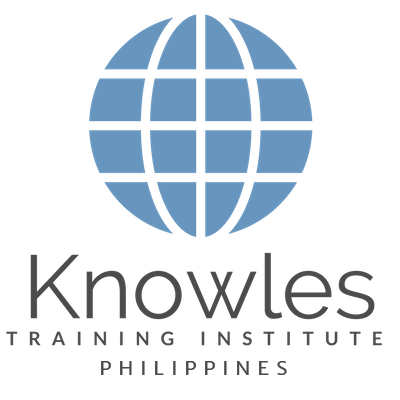Ethical Practices in Administration Training Course in the Philippines
Our training course “Administration Training Course in the Philippines ” is available in Manila, Quezon City, Makati, Pasig, Taguig, Cebu City, Davao City, Bacolod, Baguio, Iloilo City, Cagayan de Oro, Zamboanga City, Dumaguete, General Santos, and Legazpi City.
In today’s dynamic business environment, ethical practices are crucial for maintaining integrity and trust in administrative roles. Our course, Ethical Practices in Administration, is designed to guide you through the fundamental principles and applications of ethics in an administrative context. This course addresses the challenges and responsibilities of upholding ethical standards while ensuring effective and compliant administrative operations.
Participants will explore various ethical dilemmas and scenarios specific to administrative functions, learning how to navigate these challenges with professionalism and adherence to best practices. By engaging in interactive discussions and case studies, you will gain valuable insights into ethical decision-making processes and how to apply them in real-world situations. This course will empower you to foster a culture of ethics within your organisation and enhance your role as an ethical leader.
In addition to theoretical knowledge, the course provides practical tools and strategies for implementing ethical practices in daily administrative tasks. You will learn how to handle confidential information responsibly, manage conflicts of interest, and ensure compliance with legal and organisational standards. The focus on practical applications will equip you with the skills needed to address ethical issues effectively and contribute to a positive organisational culture.
Join us for the Ethical Practices in Administration course and take a proactive step towards strengthening your ethical framework in administrative roles. By the end of the course, you will be prepared to uphold and advocate for high ethical standards in your professional environment, making the Ethical Practices in Administration course a key component of your career development.
Who Should Attend this Ethical Practices in Administration Training Course in the Philippines
The Ethical Practices in Administration training course is ideal for professionals who manage or support administrative functions within an organisation. This course is particularly beneficial for those seeking to enhance their understanding of ethical practices and improve their ability to navigate ethical dilemmas in an administrative context.
If you are an administrative manager, executive assistant, or office coordinator, this course will provide you with essential skills and knowledge to ensure ethical compliance in your role. Enrol in the Ethical Practices in Administration course to strengthen your ethical decision-making and contribute positively to your organisation’s culture.
By completing the Ethical Practices in Administration course, you will be better equipped to handle ethical challenges and uphold integrity in your administrative practices.
- Administrative Managers
- Executive Assistants
- Office Coordinators
- HR Managers
- Compliance Officers
- Executive Directors
- Administrative Assistants
- Office Managers
- Risk Managers
- Operations Managers
Course Duration for Ethical Practices in Administration Training Course in the Philippines
The Ethical Practices in Administration course is designed to fit various learning schedules, offering flexibility in duration. Choose from a succinct 60-minute session for an overview, a detailed half-day course, a comprehensive full-day training, or an in-depth two-day programme to thoroughly explore ethical practices. Each option is crafted to provide valuable insights and practical skills relevant to administrative roles.
- 2 Full Days
- 9 a.m to 5 p.m
Course Benefits of Ethical Practices in Administration Training Course in the Philippines
For the training course Ethical Practices in Administration, participants will develop crucial skills and knowledge to enhance their ethical approach to administrative roles.
- Enhanced understanding of ethical principles in administration
- Improved ability to navigate ethical dilemmas and decision-making
- Mastery of handling confidential information responsibly
- Increased awareness of compliance with legal and organisational standards
- Better management of conflicts of interest
- Practical experience through case studies and interactive discussions
- Strengthened ethical leadership and advocacy skills
- Valuable insights into creating and maintaining an ethical culture
- Enhanced ability to implement ethical practices in daily tasks
- Greater preparedness for addressing ethical challenges in administrative roles
Course Objectives for Ethical Practices in Administration Training Course in the Philippines
For the training course Ethical Practices in Administration, the primary objectives are to equip participants with the knowledge and skills necessary to uphold ethical standards in administrative roles. This course will focus on ethical decision-making, compliance, and best practices to ensure integrity in administrative functions.
- Enhanced understanding of ethical principles in administration
- Improved ability to navigate ethical dilemmas and decision-making
- Mastery of handling confidential information responsibly
- Increased awareness of compliance with legal and organisational standards
- Better management of conflicts of interest
- Practical experience through case studies and interactive discussions
- Strengthened ethical leadership and advocacy skills
- Valuable insights into creating and maintaining an ethical culture
- Enhanced ability to implement ethical practices in daily tasks
- Greater preparedness for addressing ethical challenges in administrative roles
Course Content for Ethical Practices in Administration Training Course in the Philippines
The course content of Ethical Practices in Administration will cover essential topics related to maintaining ethical standards in administrative roles. Participants will explore various ethical issues, compliance requirements, and best practices to ensure integrity and professionalism in their administrative functions.
- Enhanced understanding of ethical principles in administration
- Introduction to ethical principles and frameworks
- Key ethical issues in administrative roles
- Implementing ethical guidelines in everyday tasks
- Improved ability to navigate ethical dilemmas and decision-making
- Strategies for ethical decision-making
- Case studies on common ethical dilemmas
- Tools for evaluating ethical options and outcomes
- Mastery of handling confidential information responsibly
- Importance of confidentiality in administrative roles
- Techniques for safeguarding sensitive information
- Legal and organisational requirements for data protection
- Increased awareness of compliance with legal and organisational standards
- Overview of legal standards and regulations
- Understanding organisational policies on ethics and compliance
- Ensuring adherence to ethical and legal requirements
- Better management of conflicts of interest
- Identifying and managing conflicts of interest
- Strategies for avoiding and addressing potential conflicts
- Best practices for maintaining impartiality and fairness
- Practical experience through case studies and interactive discussions
- Analysis of real-world ethical scenarios
- Role-playing exercises to simulate ethical decision-making
- Group discussions on ethical challenges and solutions
- Strengthened ethical leadership and advocacy skills
- Developing leadership skills to promote ethical behaviour
- Advocating for ethical practices within the organisation
- Leading by example in ethical decision-making
- Valuable insights into creating and maintaining an ethical culture
- Building a culture of ethics and integrity
- Strategies for promoting ethical behaviour among staff
- Evaluating and improving organisational ethics
- Enhanced ability to implement ethical practices in daily tasks
- Applying ethical principles to routine administrative duties
- Developing practical guidelines for ethical behaviour
- Monitoring and improving ethical practices in administrative functions
- Greater preparedness for addressing ethical challenges in administrative roles
- Anticipating and preparing for potential ethical issues
- Strategies for resolving ethical conflicts and dilemmas
- Building resilience in facing ethical challenges
- Understanding of ethical frameworks and guidelines
- Overview of major ethical frameworks and theories
- Applying ethical guidelines to administrative scenarios
- Comparing different ethical approaches and their implications
- Effective strategies for promoting ethical behaviour in the workplace
- Techniques for encouraging ethical conduct among colleagues
- Developing programmes to support ethical behaviour
- Measuring the effectiveness of ethical initiatives
Course Fees for Ethical Practices in Administration Training Course in the Philippines
The course fees for Ethical Practices in Administration are designed to offer flexibility based on the depth and duration of training required. You can choose from four different pricing options, each tailored to fit your schedule and learning needs. Investing in the Ethical Practices in Administration course will provide you with essential skills and knowledge to uphold ethical standards in your administrative role.
- USD 679.97 For a 60-minute Lunch Talk Session.
- USD 289.97 For a Half Day Course Per Participant.
- USD 439.97 For a 1 Day Course Per Participant.
- USD 589.97 For a 2 Day Course Per Participant.
- Discounts available for more than 2 participants.
Upcoming Course and Course Brochure Download for Ethical Practices in Administration Training Course in the Philippines
Stay informed about the latest updates and access brochures for the Ethical Practices in Administration training course. We will keep you updated on upcoming sessions and any changes to the course content. Download the brochure today to discover more about the Ethical Practices in Administration course and how it can enhance your professional skills.


